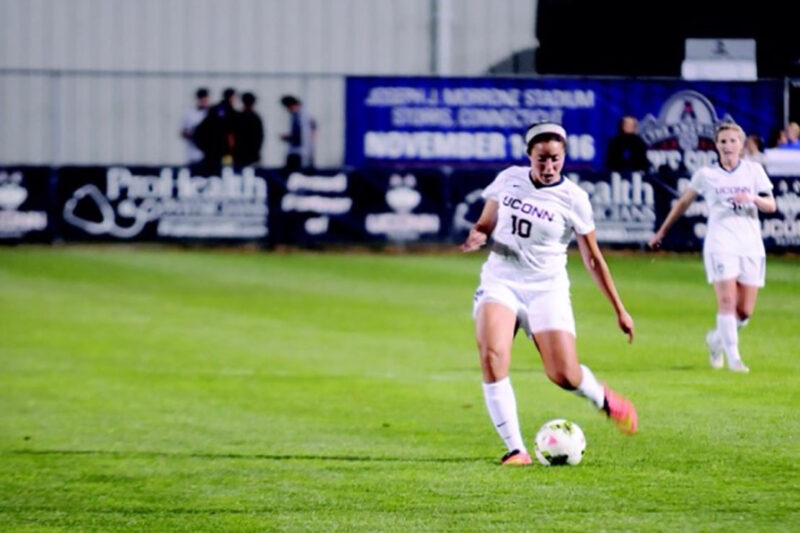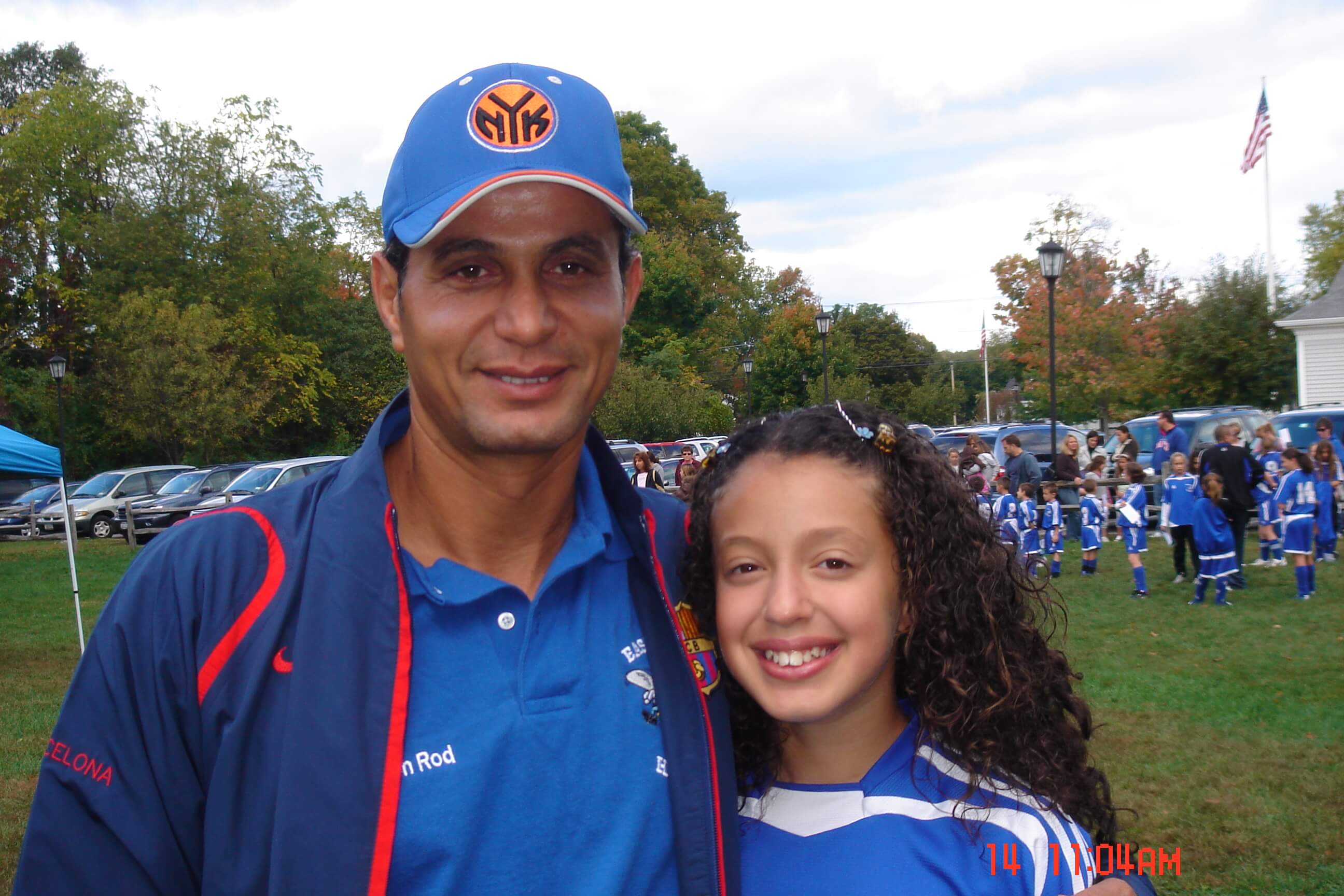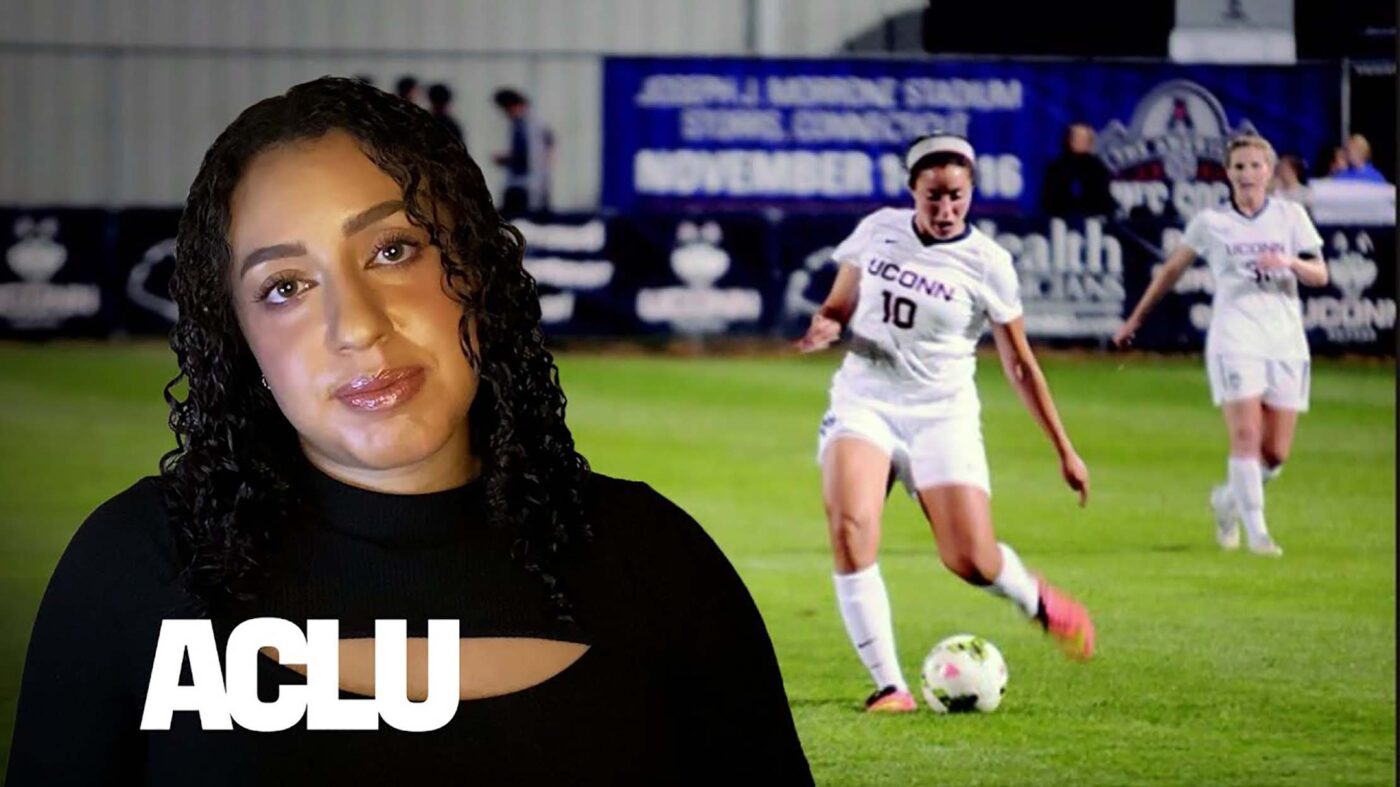A Middle Finger Cost Me My Livelihood as a Woman Athlete


It took a split second for my whole world to come crashing down.
My teammates on the University of ConnecticutŌĆÖs womenŌĆÖs soccer team were jumping and screaming and hugging each other. We had just won a championship game. It was one of the happiest moments of my life ŌĆö my first championship win at the collegiate level. Without thinking, I flashed a middle finger in celebration as I embraced teammates on camera. I couldn't have known that split-second, mindless gesture of celebration would cause UConn to suspend me from the NCAA tournament, revoke my scholarship, and completely upend my life as I knew it. All for a stupid mistake.
Right away, UConn issued a press release calling the middle finger ŌĆ£unsportsmanlikeŌĆØ behavior. I cried the whole way home through the airport, and apologized to my team. Luckily, my teammates were so supportive. But UConn was not finished punishing me.
At that point, I knew I was suspended, but I didnŌĆÖt really grasp what that meant until I tried to join my teammates in watching the NCAA selection show, which is always a big deal every year. I was essentially barred from seeing my team on campus. I wasnŌĆÖt allowed to go to any team functions or even enter the locker room. I wasnŌĆÖt allowed to wear any gear or to identify myself as a UConn athlete, either. And then over winter break, I learned that I had lost my full-ride scholarship. Without it, I could no longer afford to attend UConn. I had to transfer to another school with a partial athletic scholarship mid-year. ThatŌĆÖs when I decided to take legal action against UConn. This was about more than a tournament, and even more than a lost scholarship. This was about discrimination on the basis of sex. UConnŌĆÖs harsh punishment left me feeling ostracized. They attacked my whole identity as a career athlete. And I donŌĆÖt think the same thing would have happened if I were a male athlete.

Soccer has been my life ever since I first put my foot on a ball. I must have been about 4 years old. At 7, I joined my first team, and my dad coached me for years until I joined a premier team at 12. By that point, I knew I wanted to play soccer in college, and it was my dream to play for UConn before trying to play professionally. It seemed like I was on track to realize my dreams when UConn recruited me during my senior year of high school. But what the school did to me after the championship game made me feel disposable ŌĆö like I was just a number on a jersey, the property of the school.
All along, the subtext has been about ŌĆ£ladylikeŌĆØ behavior ŌĆö something I didnŌĆÖt know was expected of female athletes. I couldnŌĆÖt help but wonder whether IŌĆÖd receive the same treatment if I were a man. Maybe the incident would have been swept under the rug, or the coach might have had a word with me on the sidelines, if that. After all, I see male athletes do silly things that could be considered ŌĆ£unsportsmanlike conductŌĆØ all the time, and nothing ever happens. When men conduct ŌĆ£unsportsmanlikeŌĆØ behavior, theyŌĆÖre seen as passionate about their sport. But when a woman does the same thing, sheŌĆÖs perceived as angry or emotional, just throwing a fit. It isnŌĆÖt fair, and itŌĆÖs discrimination.
In June, a district court ruled against me, rejecting First Amendment claims and arguing that UConn could not be liable under anti-sex discrimination protections in Title IX unless I was able to identify specific male players who had received more lenient discipline by the same coach and for the same conduct. ▒§ŌĆÖm appealing the decision because it relies on a standard thatŌĆÖs impossible to meet. College players on single-sex teams almost never have the same coach. And there is plenty of evidence of male players on other teams engaging in even worse conduct that was not punished as severely, such as a male football player who kicked the ball into the crowd ŌĆö potentially injuring people ŌĆö and was given a 15-yard penalty, or a male soccer player who was and required only to take remedial conduct classes.
▒§ŌĆÖm fighting not just for myself, but for other athletes that feel like theyŌĆÖve been wrongly discriminated against, no matter their gender. I want all athletes to know that weŌĆÖre not just numbers on jerseys, and weŌĆÖre not school property. We should not feel powerless just because weŌĆÖre up against a big university or institution. Athletes are people, we have a voice, and we deserve to speak up when we experience discrimination.
Sex discrimination is still persistent and rampant in college and professional sports. Women athletes may find themselves on the wrong end of a stereotype ŌĆö just like I was. Athletes who are trans may be barred from participating in sports teams that align with their gender. Discrimination harms us and prevents us from realizing our dreams. All athletes belong in sports, and no school should kick us out based on stereotypes and discrimination.


